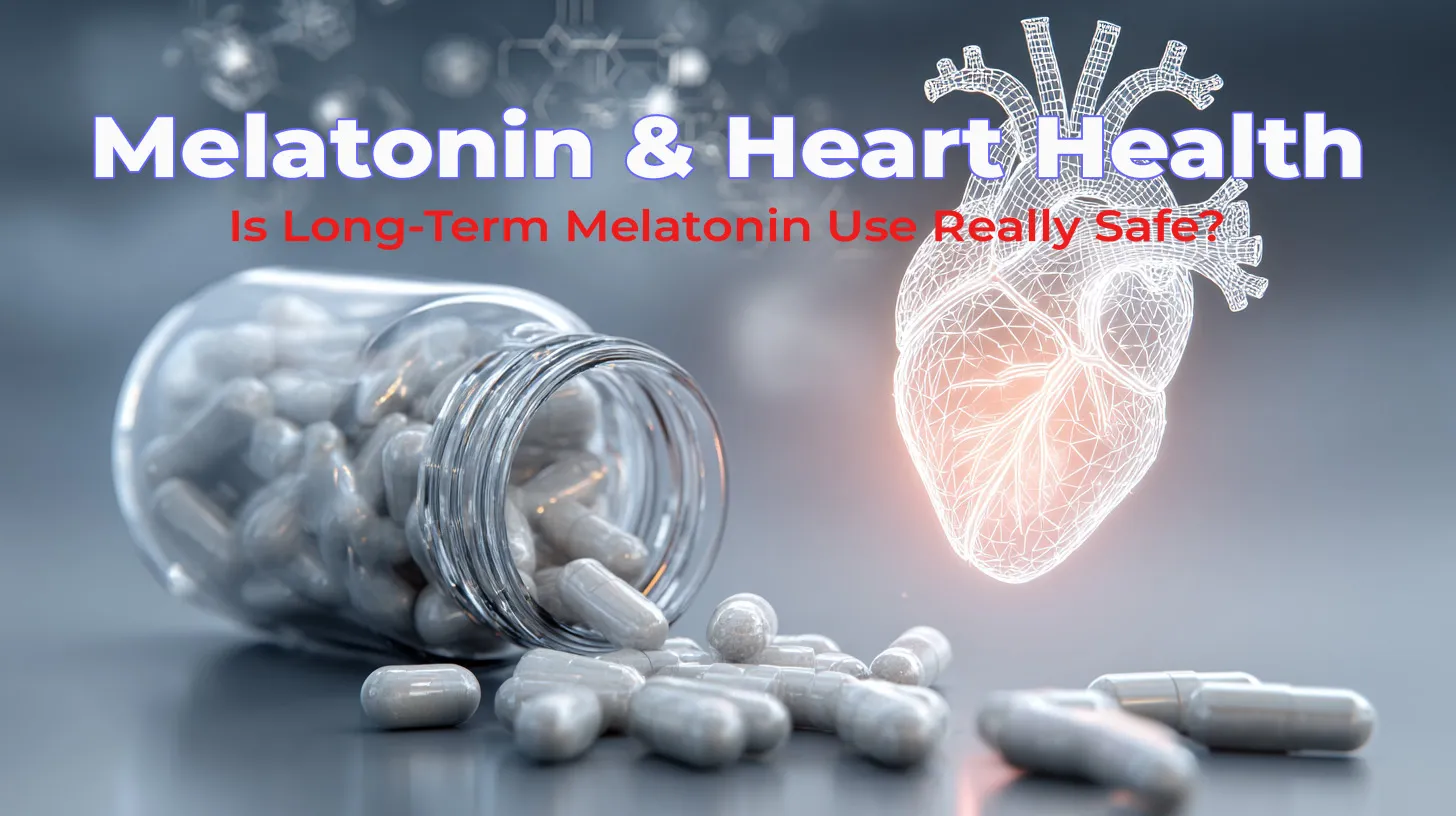Editor’s Note: Melatonin stands as a widely accepted sleep supplement generally considered safe for consumption. A preliminary American Heart Association (AHA) abstract shows that extended melatonin consumption might lead to increased heart failure cases, hospital admissions, and total death rates among patients with chronic insomnia.
It’s essential to emphasize that this study does not prove that melatonin causes heart failure. And as Dr. Pratik Sandesara, an interventional cardiologist at Emory Healthcare, noted:
“We should not raise the alarm and tell patients to stop taking all their melatonin.”
Our goal at Life Tree HQ is to summarize the findings, highlight the uncertainties, and provide measured guidance rooted in current scientific understanding.
Summary of the AHA Article
The AHA abstract examined more than 130,000 adult patients with chronic insomnia, using health records over a five-year period. The research demonstrated that people who took melatonin for longer than 12 months were more likely to:
- be diagnosed with heart failure
- be hospitalized for heart failure
- die from any cause
But these findings were based on observational data, which can show associations but cannot establish cause and effect.
The study contained multiple limitations:
- The findings have not been peer reviewed.
- OTC melatonin users in the U.S. were likely counted as “non-users.”
- The severity of insomnia and mental health variables was unknown.
- Individuals who take daily melatonin may exhibit significant differences in health status compared to those who do not.
The study detected a signal, but additional research is needed to understand its implications.
🌿 LTHQ Take
- This is a signal—not a conclusion
The research findings require attention from scientists, but they do not establish that melatonin poses any health risks. People with better health and higher income levels tend to avoid supplements. Yet, patients who have severe insomnia and anxiety or cardiovascular risks tend to seek medical assistance through melatonin treatment. - Context: Melatonin dosing is often excessive in the U.S.
The study did not examine dosage levels, but standard American melatonin supplements contain amounts that exceed human melatonin production. The study fails to establish any connection between medication amounts and treatment results. - No expert is recommending that people stop taking melatonin entirely
Preliminary findings should not lead to hasty decisions or undue concern.
Responsible interpretation means continuing to use melatonin thoughtfully, especially if you rely on higher doses or take it nightly. - If you use melatonin long-term, consider discussing it with your clinician
People should stay alert about this situation instead of panicking. People who take melatonin every night before bed should consult their healthcare provider, especially when they have heart disease risk factors. - Safer sleep support options still exist.
Given the uncertainties, many people may benefit from exploring alternatives such as:
- low-dose melatonin (<0.5 mg)
- magnesium glycinate
- glycine
- L-theanine
- circadian rhythm strategies
- CBT-I tools
Discussion
The research contributes to essential discussions about supplement safety and extended use, but it also demonstrates that sleep disorders present intricate challenges. People who end up on long-term melatonin may already suffer from:
- severe insomnia
- anxiety or depression
- disrupted circadian rhythms
- chronic stress
- cardiometabolic disease
- Lifestyle factors that impair sleep
All of these factors can independently contribute to an increased risk of heart failure.
Because the study is observational, non-randomized, and unreviewed, any interpretation must be cautious. The most scientifically responsible takeaway is:
More research is needed.
Much more.
The research serves as a warning signal, urging scientists to investigate the effects of melatonin on cardiovascular health. The scientific community needs to conduct randomized controlled trials with specific dosage management, health history documentation, and duration monitoring to establish authoritative conclusions.
For now, melatonin remains a valuable tool when used appropriately.
Related Reading on Life Tree HQ
- Melatonin, The Pros and Cons of Using it for Sleep
- Andrew Huberman’s Sleep Cocktail and Lifestyle Recommendations for Better Sleep
- Apigenin: A Natural Remedy With Anxiety, Sleep, and Antioxidant Benefits
Source:
American Heart Association Scientific Sessions 2025 (Abstract MP2306).
This study is preliminary and has not yet undergone peer review.
Original reporting by the American Heart Association.

